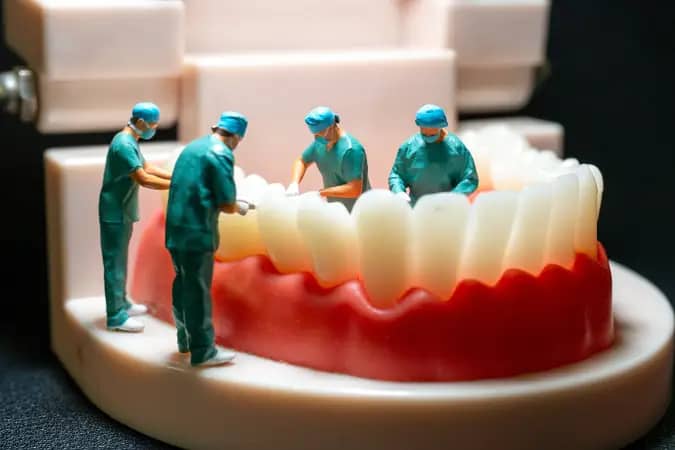
Can Dental Cleanings Help Identify Potential Oral Health Issues Early? Insights You Can’t Afford to Miss
In this blog post, we’ll explore how routine dental cleanings act as a frontline defense against hidden oral health problems, from gum disease to oral cancer. We’ll compare outcomes for patients who prioritize regular cleanings versus those who delay care, break down the science behind early detection, and explain why these appointments are about far more than just a polished smile.
The Hidden Value of Dental Cleanings: More Than Just a Bright Smile
Dental cleanings, often seen as a cosmetic or maintenance service, are actually a critical component of preventive healthcare. During a typical cleaning, your hygienist and dentist don’t just remove plaque and tartar—they conduct a comprehensive screening of your oral health. According to the American Dental Association (ADA), these appointments are designed to catch problems *before* they escalate into pain, tooth loss, or systemic health issues.
Here’s what happens during a professional cleaning:
- Plaque and Tartar Removal: Even the most diligent brushers can’t fully eliminate plaque, which hardens into tartar within 48 hours. Tartar buildup is a key contributor to gum disease.
- Gum Health Assessment: Your hygienist measures gum pocket depths to check for inflammation, a sign of early-stage gingivitis or advanced periodontitis.
- Oral Cancer Screening: Dentists examine your tongue, throat, and soft tissues for abnormalities, which could indicate precancerous or cancerous lesions.
- X-rays and Imaging: These tools reveal hidden issues like cavities between teeth, impacted wisdom teeth, or bone loss.
A study published in the National Institutes of Health (NIH) found that **90% of oral cancers** are detectable early through routine exams, drastically improving survival rates.
Early Detection in Action:
Problems Your Dentist Spots Before You Do
1. Gum Disease: The Silent Threat
Gum disease (periodontitis) often progresses painlessly until it reaches advanced stages. During cleanings, your dentist checks for:
- Bleeding gums (a sign of inflammation).
- Pocket depthsdeeper than 3mm (indicating tissue detachment).
- Receding gums (exposing roots and increasing sensitivity).
Left untreated, gum disease erodes bone and is linked to systemic conditions like heart disease and diabetes, as noted by the Cleveland Clinic.
2. Tooth Decay: Stopping Cavities in Their Tracks
Decay between teeth or beneath fillings isn’t always visible or painful initially. X-rays and tactile exams during cleanings identify these “silent cavities” before they require root canals or crowns.
3. Oral Cancer: A Lifesaving Check
Oral cancer screenings take less than five minutes but can save lives. Dentists look for red/white patches, sores that don’t heal, or unusual lumps. Early-stage oral cancer has an **85% survival rate**, compared to just 30% when diagnosed late.
4. Bite and Jaw Issues
Uneven wear on teeth or jaw pain might indicate TMJ disorders or bruxism (teeth grinding). Custom nightguards can prevent irreversible damage.
Regular vs. Infrequent Cleanings: A Side-by-Side Comparison
Factor | Regular Cleanings (Every 6 Months) | Infrequent Cleanings (Every2+ Years) |
|---|---|---|
Gum Disease Risk | Low (early inflammation treated promptly) | High (untreated gingivitis progresses) |
Cavity Treatment | Small fillings or fluoride therapy | Root canals, crowns, or extractions |
Oral Cancer Dectection | Early-stage, highly treatable | Late-stage, lower survival rate |
Cost Over 10 Years | $1,000–$2,000 (preventive care) | $10,000+ (extractions, implants, surgery) |
Overall Health Impact | Lower risk of diabetes/heart complications | Higher systemic inflammation and complications |
Data sourced from MouthHealthy and NIH.
This table highlights a stark reality: preventive care isn’t just healthier—it’s cheaper
The Ripple Effect of Early Detection: Beyond Your Mouth
Oral health is deeply intertwined with overall wellness. For example:
Diabetes: Gum disease raises blood sugar levels, complicating diabetes management.
Heart Disease: Chronic oral inflammation is linked to arterial plaque buildup.
Pregnancy Complications: Periodontitis increases the risk of preterm birth.
By addressing oral issues early, you’re not just protecting your smile—you’re safeguarding your entire body.
Debunking Myths: “But My Teeth Feel Fine!
Many patients assume no pain means no problems. Unfortunately, this is a dangerous misconception. Conditions like oral cancer, gum disease, and cavities often present *no symptoms* until they’re advanced. Routine cleanings act as a safety net, catching what you can’t see or feel.
Many patients assume no pain means no problems. Unfortunately, this is a dangerous misconception. Conditions like oral cancer, gum disease, and cavities often present *no symptoms* until they’re advanced. Routine cleanings act as a safety net, catching what you can’t see or feel.
Your Action Plan: Prioritize Prevention
- Schedule Biannual Cleanings: Mark your calendar for appointments every six months.
- Communicate Concerns: Mention even minor changes in your oral health (e.g., dry mouth, sensitivity).
- Invest in Prevention: Dental insurance often fully covers preventive care—use it!
If you’re in Dublin, CA, our team at We Care Dental offers thorough cleanings paired with personalized care plans to keep your smile healthy for decades.
Conclusion: Cleanings Are Your Secret Weapon
Routine dental cleanings are far more than a cosmetic luxury—they’re a vital tool for catching oral health issues early, saving you time, money, and discomfort down the line. By partnering with your dental team and prioritizing prevention, you’re investing in a healthier smile and a healthier life.
Don’t wait for pain to strike. Book your next cleaning today and take control of your oral health journey.
*References embedded throughout. For more information, visit MouthHealthy, the Cleveland Clinic, or explore studies via NIH/PMC.